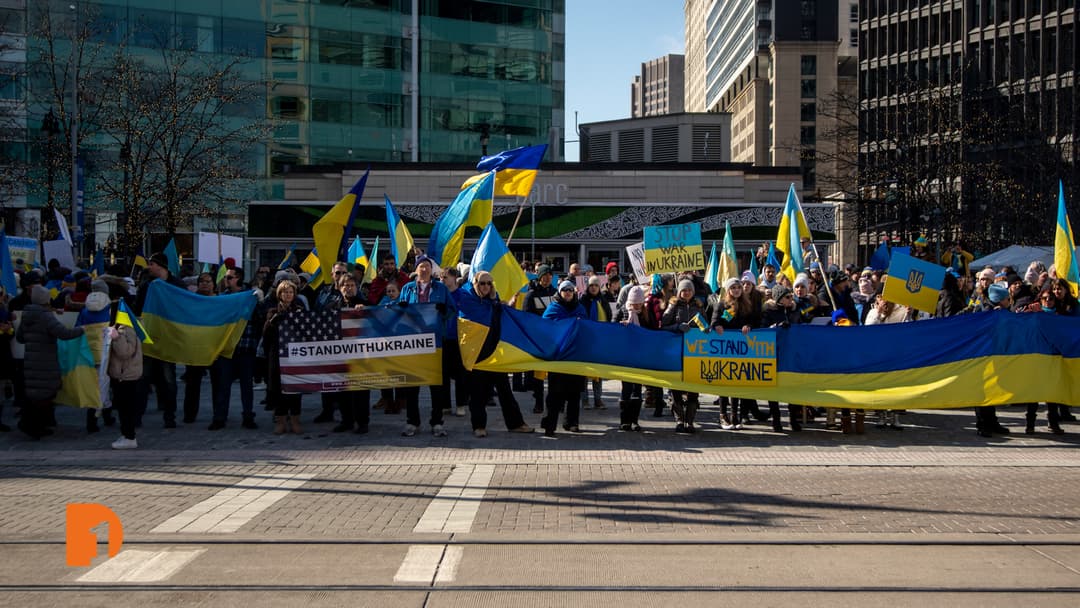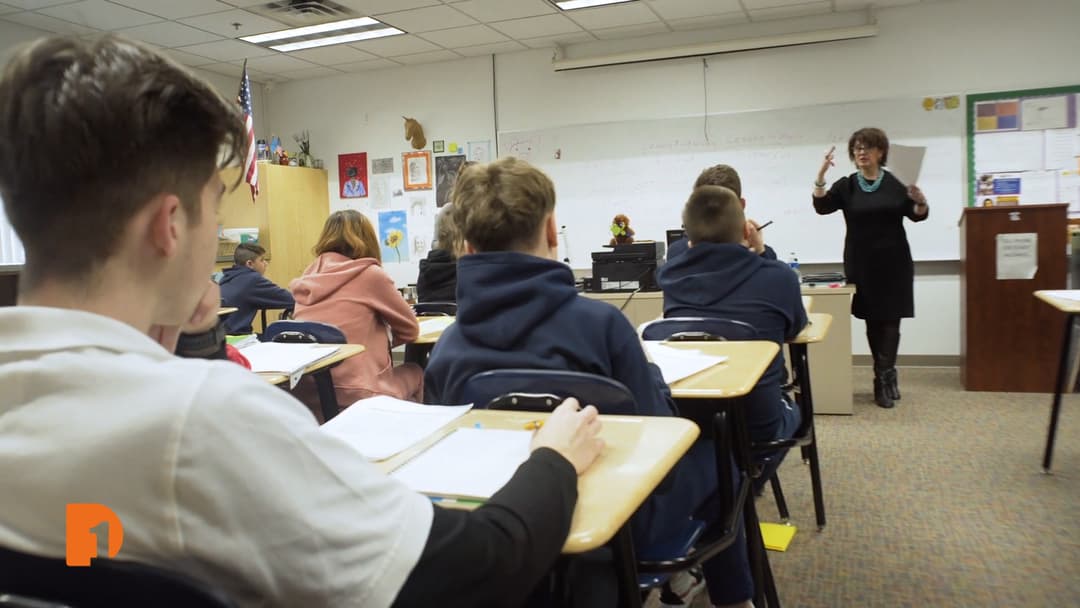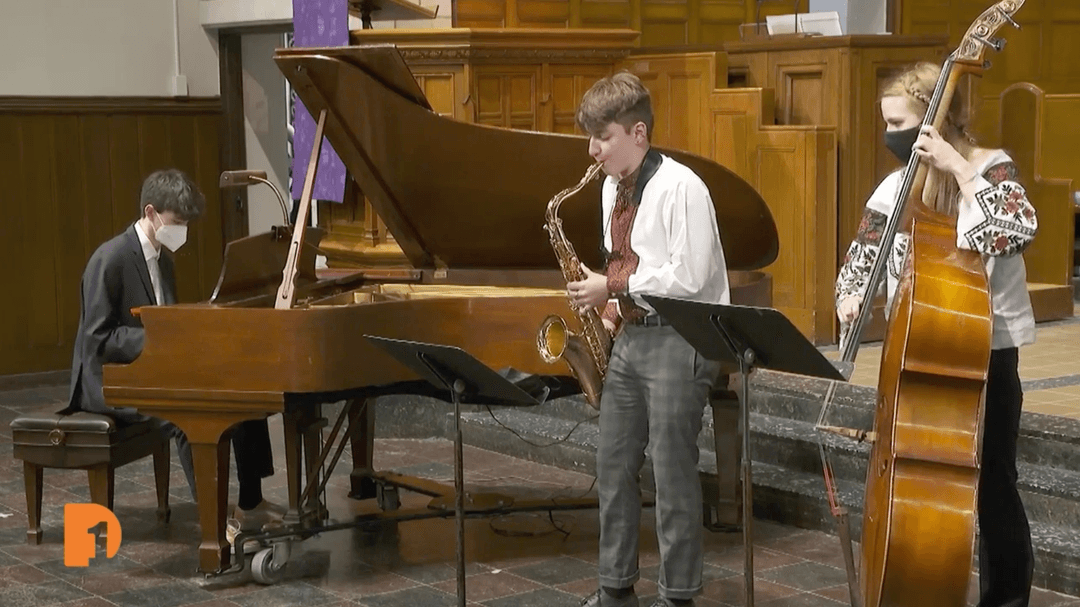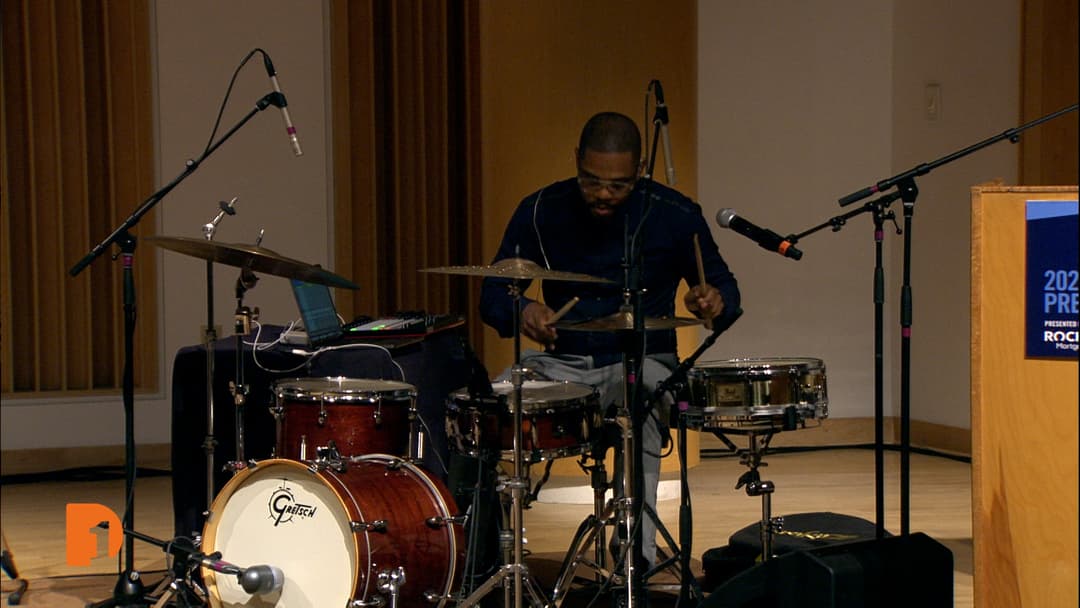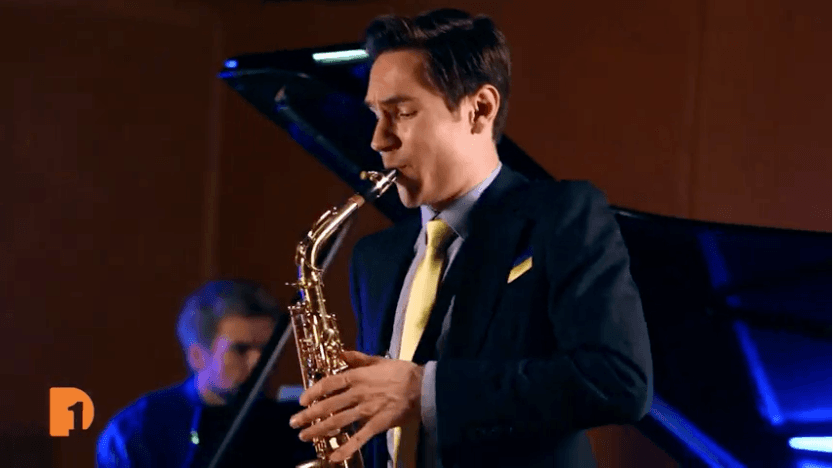Facing the music: Ukrainian quartet DakhaBrakha continues to speak out against Russian conflict
Mar 9, 2022
Music listeners and internet users across the globe may likely know the Russian band Pussy Riot, who were persecuted for fighting against political oppression, but what about the four-piece Ukrainian quartet with Detroit connections, DakhaBrakha? The quartet is also known for standing up against Putin’s regime and has continued to risk their safety to speak up and spread the truth as the Russia-Ukraine conflict continues.
RELATED: Searching for Truth in Lies: Ukrainian-Americans React to Russia Conflict, Misinformation Campaign
Sonically, the quartet, which has performed at Detroit’s Concert of Colors series in the past, blends styles of jazz, rock, world music and some Ukrainian rap into a unique cultural performance. However, cultural performances, like the ones DakhaBrakha put on, and Ukrainian heritage as a whole stands at risk of being stripped away by attacks from the Russian government.
One Detroit’s Bill Kubota connects with WDET Radio Host and Concert of Colors Director Ismael Ahmed to learn more about the quartet’s connection to Detroit and the cultural significance of their music across the globe. Plus, Ahmed talks with DakhaBrakha’s Artistic Manager Iryna Gorban to hear what’s happening on the ground in Ukraine and how the quartet and other citizens are being affected by the conflict.
Full Transcript:
Bill Kubota, One Detroit (voiceover): DakhaBrakha: likened to Russia’s Pussy Riot. Persecuted for their fight against political oppression, but DakhaBrakha– They’re Ukrainian with a Detroit connection.
Ismael Ahmed, WDET Radio Host: The music is out there – it has a Ukrainian traditional bass but goes every which way, they’re big into jazz, they’re big into rock, they even do a bit of Ukrainian rap but it also has a very classical sound, it’s really to pinpoint the style because it’s their own style.
Bill Kubota (voiceover): DakhaBrakha made appearances in the local Concert Of Colors music series, seen here on Detroit PBS, thanks to Ismael Ahmed. Ahmed created the series. He got to know the band through his public radio program.
Ismael Ahmed: Given that I work at WDET and do “This Island Earth,” which is I guess a world music show, but a show that is allowed to go everywhere, that’s unusual for radio, it’s a good fit so I play them quite a bit.
Bill Kubota (voiceover): Performances like these (are) perhaps at risk; part of the culture many Ukrainians believe the Russians would like to do away with. Ahmed’s talking with the band’s artistic manager, on the line from Ukraine.
Ismael Ahmed (on the radio): Yes, have you been affected by the bombing?
Iryna Gorban, Artistic Manager, DakhaBrakha (on the radio): Ah, we can hear it all the time. Sometimes it’s closer, sometimes it’s far but my house is still safe…
Ismael Ahmed: I was talking to Iryna Gorban, she’s very much part of the band, she travels with them, she faces everything they face…
Iryna Gorban (on the radio): We sleep in the bathroom, because, or the basement because we have these air alarms all the time.
Bill Kubota (voiceover): DakhaBrakha has been protesting war and the Putin regime during their shows for years. The band members are hunkered down in undisclosed locations. They’re okay, for now.
Ismael Ahmed: It’s a mainly women’s group and so I don’t think men could make that kind of music. They conquer their audiences over and over and the word spreads, they’re now a major world performing group.
Ismael Ahmed: It turns out that their agent Bill Smith is an old friend of mine and he is an, I don’t know, a discoverer. He finds some of the best music on the planet and not your normal music so he’s the one who turned me on to them.
Bill Kubota (voiceover): DakhaBrakha first toured North America in 2013, returning often until COVID hit. There were plans to come to the U.S. again in late March. But then came war.
Ismael Ahmed: They are literally shelling right now and one of the things I was warned is that they might have duck for cover in the middle of the interview or maybe it wouldn’t come off, the Russian authorities are trying to take down internet and all possibility of communications so this was done under duress but they are brave and Iryna is brave and so they want the world to know what’s going on.
Iryna Gorban (on the radio): I don’t know how to explain it but people get used to it so now we are all in these kind of stress when we try to be united, try to be calm, try to help each other, we really believe as long as we can stay here we will stay here. I tell this now because now I’m like calm and confident but in several hours I don’t know what will be so maybe I change my mind in several hours. Let’s sleep here this night or tomorrow so nobody knows.
Ismael Ahmed: Whether its Concert of Colors or “This Island Earth” on WDET we’re living in a world where this music is being made where horrible things are going on and people are struggling but they’re also struggling to tell us and they do that through their music. Music is a powerful force.
I’m happy that I’m able to help get out the word through these musicians. We have to understand what kind of world we live in, we can’t stay numb to things like starvation and refugees and immigration problems and war, literally there is war happening all over the planet some smaller wars, some huge wars like this one. We’ve got to be involved and the music helps us to do that.
Ismael Ahmed (on the radio): Do you think that you will ever be playing music again?
Iryna Gorban (on the radio): For sure and no one’s in doubt and I think we will do it even sooner than it’s expected because I’m sure now the world needs Ukrainian culture to understand the differences of Ukrainian and Russian people, like to see that the difference of Ukraine and Ukrainian culture.
Ismael Ahmed: They are a direct target. They’ve been told that, they are one of the most powerful voices in Ukraine against what is happening both culturally and politically and so do these interviews at a great, great risk.
Ismael Ahmed (on the radio): Well we’d love to have you back in Detroit…
Iryna Gorban (on the radio): Thank you. Thank you. There really also just, needs to hear us so much because the enthusiasm brings, and touring there, it’s really very moving, it’s very great to hear this.
Subscribe to One Detroit’s YouTube Channel & Don’t miss One Detroit Mondays and Thursdays at 7:30 p.m. on Detroit Public TV, WTVS-Channel 56.
Catch the daily conversations on our website, Facebook, Twitter @DPTVOneDetroit, and Instagram @One.Detroit
View Past Episodes >
Watch One Detroit every Monday and Thursday at 7:30 p.m. ET on Detroit Public TV on Detroit Public TV, WTVS-Channel 56.
Stay Connected
Subscribe to One Detroit’s YouTube Channel and don’t miss One Detroit on Thursdays at 7:30 p.m. and Sundays at 9 a.m. on Detroit PBS, WTVS-Channel 56.
Catch the daily conversations on our website, Facebook, Twitter @OneDetroit_PBS, and Instagram @One.Detroit
Related Posts
Leave a Reply
Your email address will not be published. Required fields are marked*




